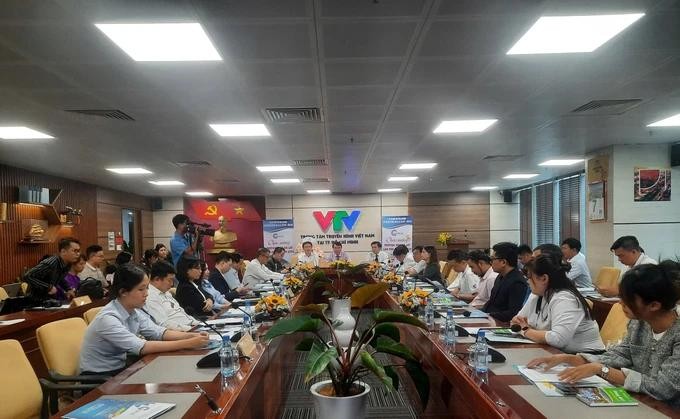VOV.VN - Vietnam has no choice but to embark on and push for further digital transformation should it wish to become a developed nation and a high-income earner in the coming decades, said Information and Communication Technology Minister Nguyen Manh Hung.

Information and Communication Technology Minister Nguyen Manh Hung addresses a cremony marking National Digital Transformation Day 2023 in Hanoi on October 10. 9Photo: laodong.vn)
Addressing a ceremony held to mark National Digital Transformation Day in Hanoi on October 10, Hung stressed that acceleration of digital transformation would contribute to creating a digital economy with a growth rate three of four times higher than normal GDP growth.
Digital transformation can be viewed as sustainable development because it consumes fewer resources and generates fresh data, he said.
According to the Minister, digital transformation increases the resilience of the economy, with every citizen able to get access to digital services providing they have a smart phone connected to a service provider.
Vietnam has duly entered into its fourth year of implementing the national digital transformation programme. After getting acquainted with and getting down to work on digital transformation infrastructure and its services over the past three years, this year will see Vietnam make use of new technology, high technology, and especially artificial intelligence to solve specific problems occurring in the country, said Minister Hung.
The Minister emphasised that digital transformation is a long, all-encompassing, and comprehensive process that will be a success only when people are placed at the centre and are encouraged to further engage in the process in a bid to ensure that no one is left behind.
The Prime Minister approved the national digital transformation programme in June, 2020, and decided to observe October 10 as National Digital Transformation Day, starting in 2022.
Moving forward the programme is expected to mark the nation’s transition from the IT application and e-Government development phase to focusing on comprehensive digital transformation of the entire population, with people and businesses placed at the forefront.
With a view to universalising digital services among all citizens, nearly 100,000 community digital technology groups have been established nationwide, including in villages and far-flung areas, in an effort to support residents in using digital services.














